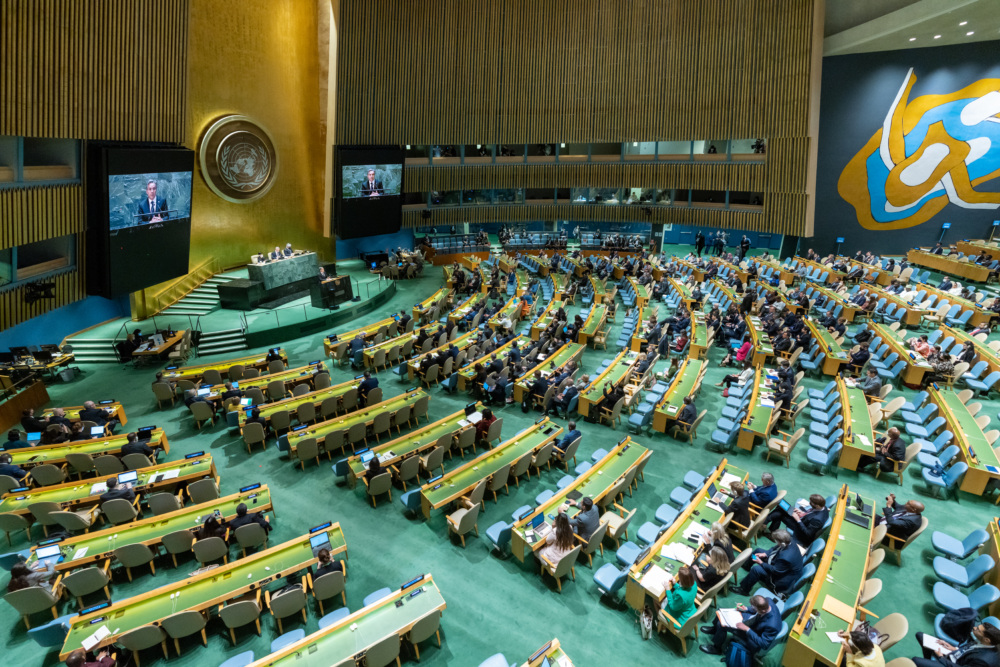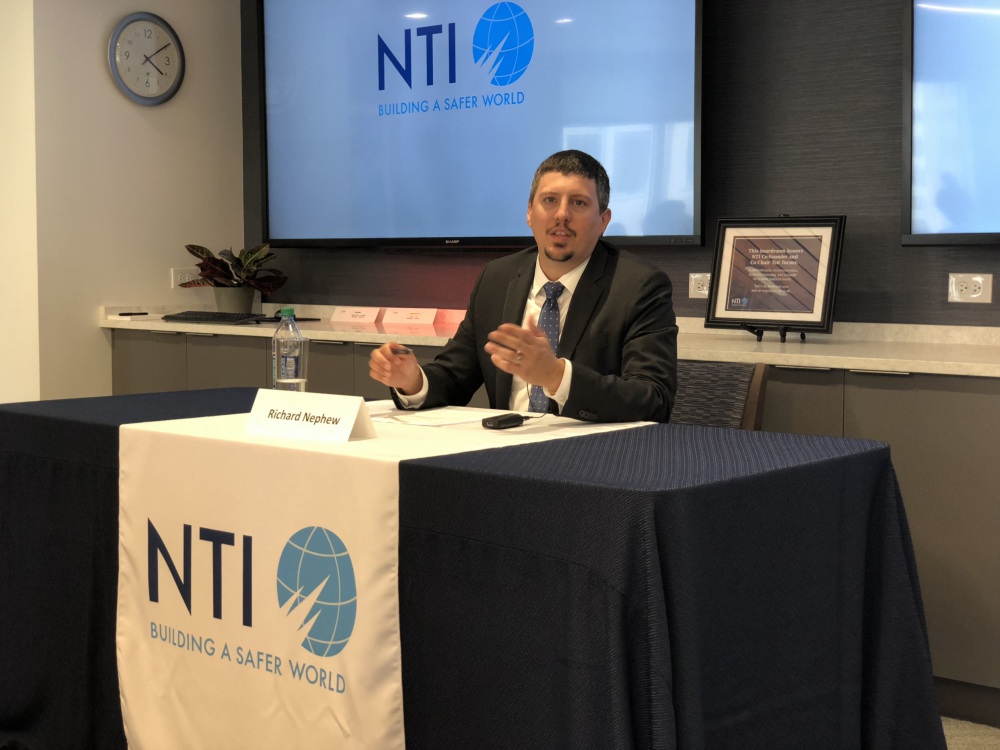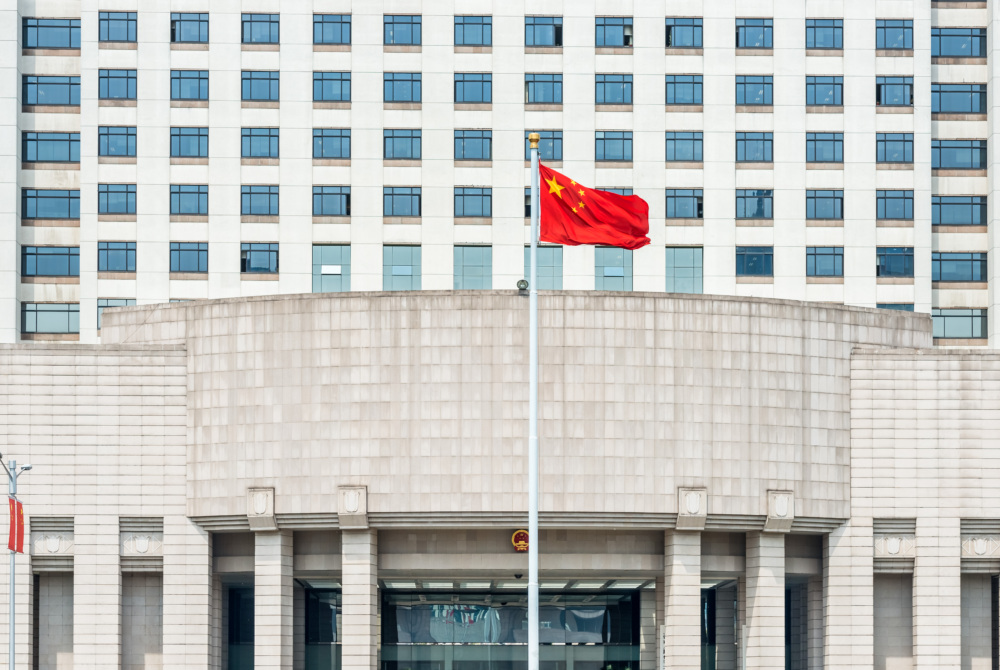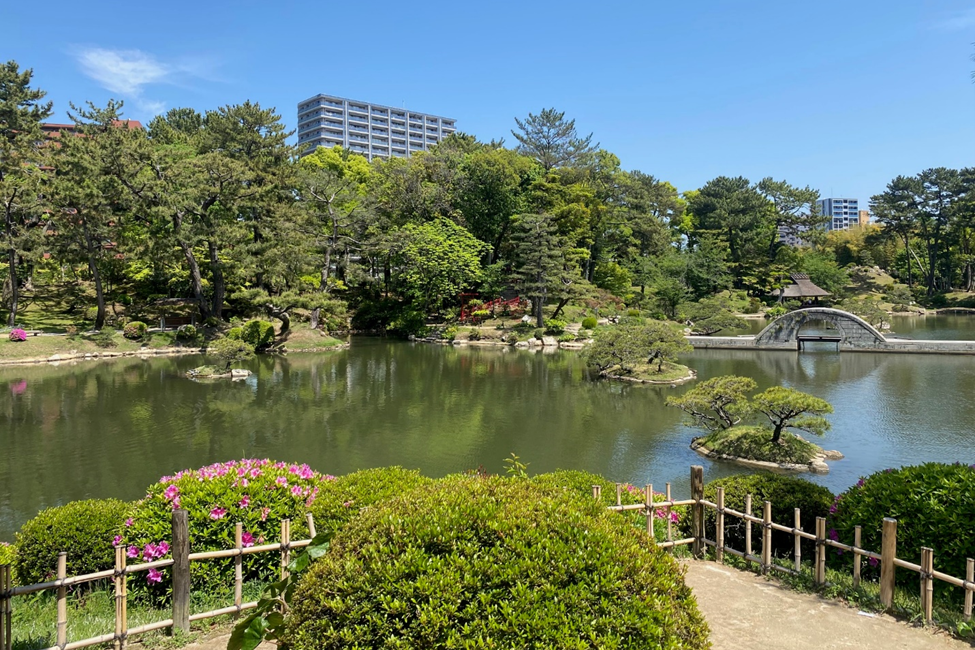This post was
written by Mary Fulham, an intern on NTI’s Global Nuclear Policy and Programs
team who is a recent graduate of The George Washington University’s Elliott
School of International Affairs with a major in Middle East Studies.
In
the wake of the United States’ unilateral withdrawal from the Iran nuclear
agreement and re-imposition of sanctions on Iran, sanctions expert Richard
Nephew, a senior
research scholar at Columbia University’s Center on Global Energy Policy, headlined the second in NTI’s new seminar
series by addressing the question on everyone’s minds: will President Trump’s approach
work?
The
Bush/Obama approach
To
add context and better assess the impact of this decision, Nephew highlighted three
factors that helped make the 2006-2013 round of sanctions on Iran particularly
effective.
1) The context of Iraq: President Bush had shown the world he
was willing to use force to prevent the acquisition of WMDs by the Iraqi
government, so a similar operation in Iran seemed entirely plausible. European
and Iranian leaders strongly opposed a U.S. invasion of Iran, so the credible threat
of force motivated them to come to the negotiating table and work towards a diplomatic
solution.
2) Validation from an international
organization: U.S.
concerns about Iran’s nuclear program were legitimized by reports from the IAEA
that showed consistent growth in the number of Iranian centrifuges and quantity
of enriched uranium.
“People
trusted those IAEA reports a heck of a lot more than they trusted U.S.
intelligence assessments,” Nephew said.
These
reports gave the U.S. the leverage it needed to bring the issue to the U.N.
Security Council and the legal foundation necessary to convince other countries
to join the push for sanctions, as a matter of upholding international law.
3) The dual-track approach: The Bush administration’s offer to
engage and negotiate with Iran was as credible as the threat of sanctions, and
they sent a clear message with this dual-track approach: “This was not just
simply about sanctioning the Iranians, this was also about offering them a way
out,” he said.
President
Obama’s “hyper-charged” commitment to the dual-track strategy made the Iranians
take him more seriously. The Obama administration “didn’t just use sanctions as
a means to an end … [they] used it to reinforce and strengthen engagement, and [they]
used engagement to reinforce and strengthen sanctions.”
The
current approach
The
administration has taken an entirely different approach, and Nephew is not optimistic.
1) Dwindling motivation to work with the
United States: The Trump
administration has been working with European partners to find ways to amend
the Joint Comprehensive Plan of Action (JCPOA) to satisfy the conditions that
the president outlined in a January 2018 speech for staying in the deal.
However, Nephew said “there is widespread skepticism, particularly in Europe
but also elsewhere … that the U.S. is actually committed to the negotiations”
and genuinely interested in forging a new deal. This skepticism stems from the failure
of negotiations to date, the administration’s refusal to compromise, and the appointment
of staunchly anti-JCPOA people in senior positions.
“Some
in the NGO/think tank community argue that Europeans and other governments will
go along with what [President Trump] demand[s] eventually,” Nephew said. But
for this to happen, Iran would have to restart its nuclear program, which seems
unlikely.
2) IAEA reports indicate Iranian compliance: “[The Iranians] are going to thrive on
IAEA reports coming out … saying Iran is complying with its obligations,” he
said The Iranians realize that restarting their nuclear program would play
directly into Trump’s hand.
The
United States’ position will be undermined by IAEA reports showing Iranian
compliance with the terms of the JCPOA. The IAEA reports gave presidents Bush
and Obama critical support from the international community—and the Iranians
recognize that it is in their interest to keep it this way.
3) Transition to a single-track
approach: The Trump
administration’s exclusive focus on sanctions seems to have broken with the
dual-track approach of previous administrations. President Trump’s antipathy
toward negotiations with Iran has alienated potential partners in Europe,
Russia, China, Turkey, and India and damaged his ability to amass international
support for the new sanctions.
Some
companies already have withdrawn from Iran to comply with the pending sanctions,
but Nephew emphasized that leaving the decision to companies, instead of
enforcing legal obligations, creates the opportunity for loopholes and
sanctions evasion schemes.
In
the long-term, the president’s preference for sanctions could sideline the U.S.
in the global economy; international business is less likely to come to the
U.S. if companies expect to have to protect their global assets from more
sanctions. Furthermore, secondary sanctions which prevent foreign companies
from doing business in Iran and the U.S., are designed to hurt those companies
but also deprive the U.S. economy of their investment and business.
Where
does that leave us?
For
now, the U.S. is stuck in the “muddled middle,” Nephew said. U.S. sanctions
will not be as effective as the 2006-2013 sanctions package unless the
administration rallies more international support, but he has shown no interest
in doing so. Meanwhile, the Iranians will likely restart some components of
their nuclear program without altering their breakout time.
“The
muddled middle is actually the best that we can hope for until such a point in
time when the future U.S. administration could have the kind of credibility
necessary to reenter negotiations with international partners,” he said.




